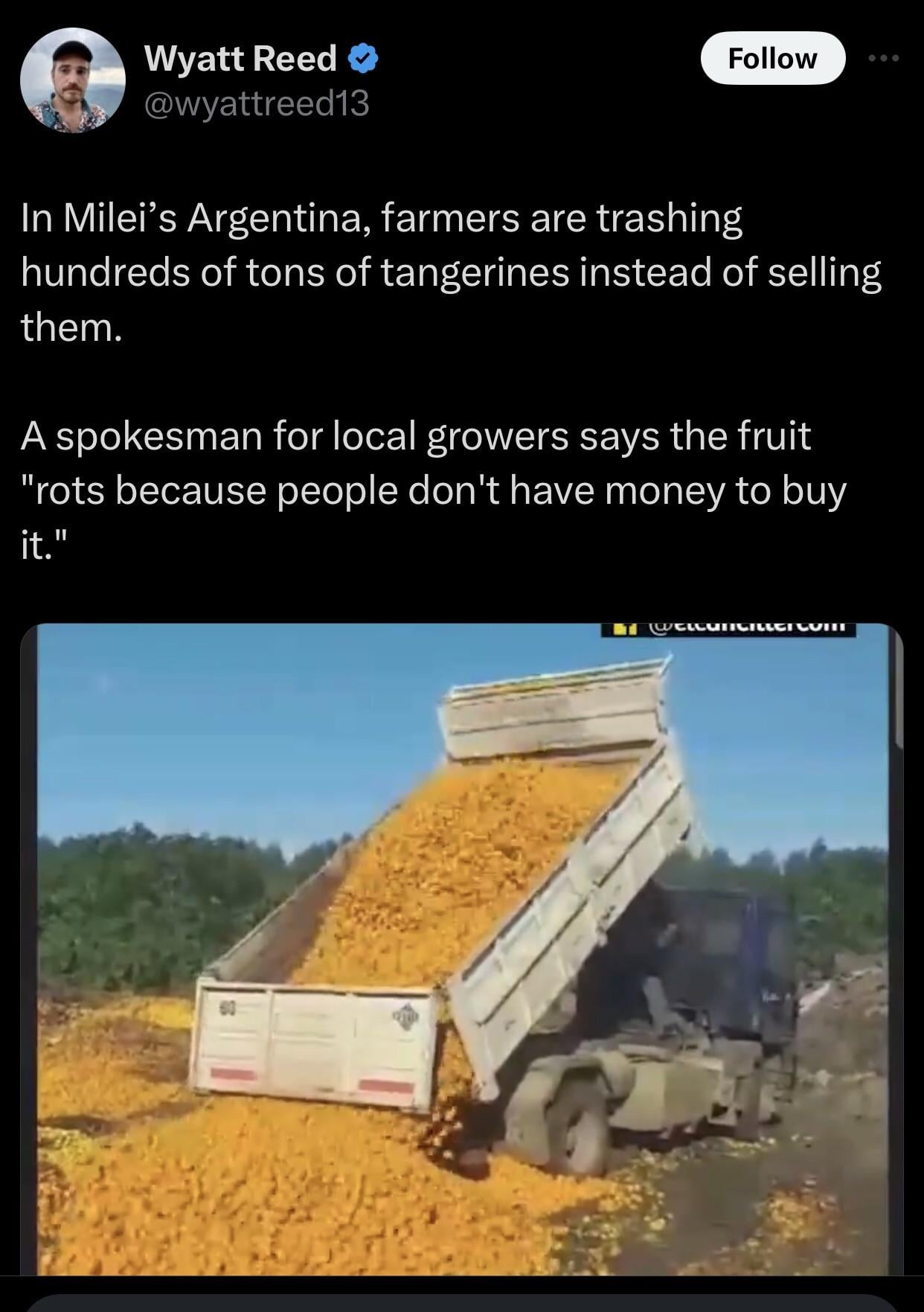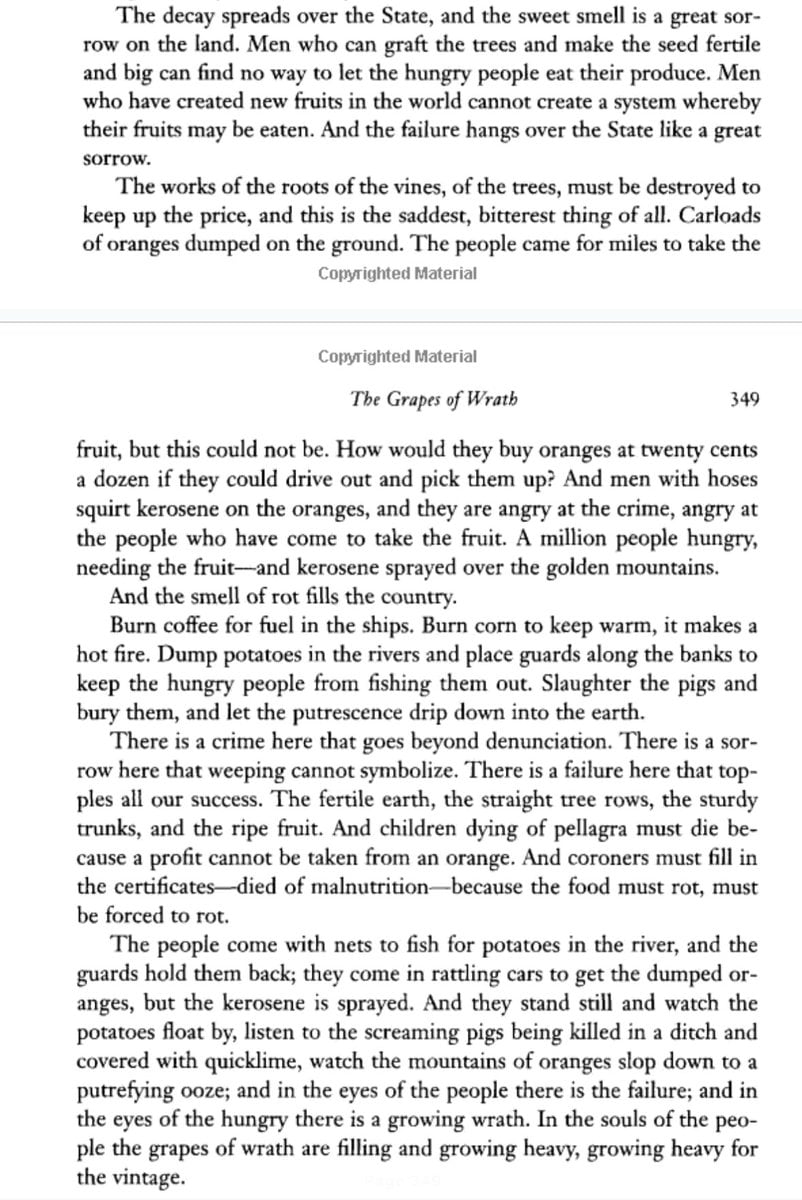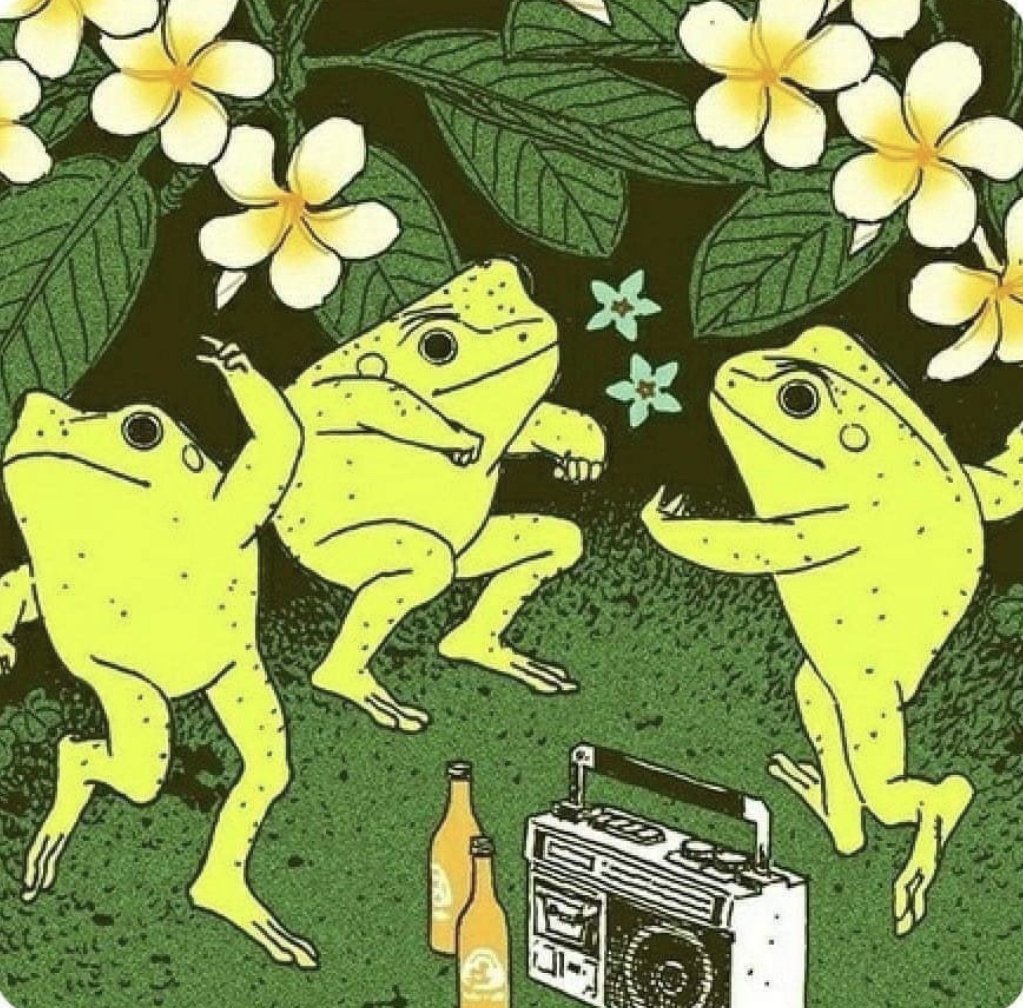Easy there OP, do you think food is some kind of “human right” or something? Before you know it, people will be saying housing is too.
In 2021, the United Nations General Assembly passed a resolution that everyone has a right to food and the UN should work to eliminate world hunger. It passed 186 for and 2 against. The two countries that disagreed were the United States and Isreal.
This fact makes me viscerally angry
Yet not angry enough.
what are you trying to say?
…That there are people who make the decisions to let millions starve, yet we as a society happily throw people in jail or the chair for much less. If some wild gunman were shooting up the neighborhood, the way to stop them is simple. But if some wild suit lets millions starve artificially, “grr I’m so angwy!”
Not to defend them, but that only makes them less hypocritical than others. Talk (and UN resolutions) are cheap, and most countries don’t guarantee food or shelter in practice. Finland is the only one that comes to mind as actually achieving this.
Edit: perhaps the downvoters would like to prove me wrong by providing their own examples?
There is a very logical progression of basic human needs. Without oxygen, a human will die in less than an hour. We need clean breathable air. Without water, a human a will die in less than a month. We need clean drinkable water. Without food a human will die in less than a year. Shelter is trickier because people can die of exposure and hypothermia in a matter of hours, but may be able to survive without it.
- Air for profit
- Water for profit <- This exists
- Food for profit <- We are here
- Shelter for profit
Minor correction: You’re technically right, but you will die in less than a week without water and less than a month without food.
There is an issue with that approach.
When they say free speech is a right, life is a right, freedom of conscience is a right and so on, they mean that others can’t take away from you what’s already yours. Our world, eh, is still that bad that this requires clarification and most people disagree with some or all of these.
I’d say in the situation where there are no white spots on the map, and growing food requires land and other such resources, and those have already been shared, - yes, these are rights. But a different kind by different logic.
A bit like the first part is reactive, while the second part is active. I’m bad with words.
During the Great Depression the federal government literally paid farmers to not harvest crops because allowing that much food to be produced would dilute the market and bring down crop prices.
During the Great Depression.
A time when people were starving and there were virtually no forms of welfare.
When millions were thrust into poverty for reasons entirely out of their control.
The federal government paid farmers to create less food to protect profit margins.
Nowadays they largely pay for the food and give it to to people. We got gallons of eggs at one point from that.
Farmers have bills to pay, too. If the price of growing food doesn’t cover the cost to make it they’ll go out of business. Then there will be one less farm to grow food. If there’s no farms and we’re totally reliant on imports, that’s a strategic weakness.
It’s the same reason we prop up carmakers when they go out of business: Manufacturing capacity is a strategic asset just like farmland.
Then subsidize the farmers by the amount you were paying them to not harvest the food ? They don’t make any money when they aren’t selling it at all either, without this intervention…
Which leads to even cheaper food prices and even more subsidies, and then you have a planned economy.
Oh wait.
“During the Great Depression” could have been Hoover or Roosevelt.
It was FDR
Are you sure you aren’t thinking of crop rotation? Have 4 fields, have one fallow every 4 years to recharge the soil. Keep farming without doing so causes the topsoil to blow and that caused the great dustbowl which preceded the great depression.
My grandpa was offered to be paid to let the harvested corn just rot, so it was after harvest.
It boggles my mind how little people are aware of this kind of practice. The Who even wrote a “joke” song about it in the 70s:
Well, I farmed for a year and grew a crop of corn
That stretched as far as the eye can see
That’s a whole lot of cornflakes
Near enough to feed New York till 1973Cultivation is my station and the nation
Buys my corn from me immediately
And holding sixty thousand bucks, I watch as dumper trucks
Tip New York’s corn flakes in the sea~~
Well, my pick and spade are rusty
Because I’m paid on trust
To leave my square of cornfield bareProbably to keep from ripping up the top soil during the harvest. Kind of counterintuitive to use less farmland and to produce less when the price is high, but same thing works with oil fields - you get more the slower you pump.
How would letting harvested corn rot in piles use less farmland? Definitely keeps prices high though.
Oh, I thought you were talking about not harvesting the corn once it was ready.
federal government literally paid farmers to not harvest crops
If it was already harvested and then left to rot, that was market manipulation of some sort. Maybe Grangers and breaking the rail monopolies? Though I think they did the whole “left harvested food to rot” bit in the late 1800s, not early 1900s

The reasons behind it are quite simple:
- Food spoils very quickly, so mostly if you don’t consume it locally you need to quickly export which is quite expensive. Very often it’s simply cheaper to utilize it for example as fertilizer.
- Storing food is costly.
- The best option would be not to produce an excess of food but 1) demand is hard to predict 2) crops output is hard to predict 3) for legal reasons like contractual obligations it’s better to produce more than less.
- Current markets are hardly free: see https://www.history.com/news/government-cheese-dairy-farmers-reagan
In today’s world every person who starves, who does without, who suffers unnecessarily…
Does so only because someone wants it so . Not because there is not enough
It was rather radicalizing finding out that the world makes three times as many calories per person than is necessary to feed every person on this planet, but because we’re idiots living in a class society in the year 12024 HE, luxury restaurants regularly dump slightly subprime ingredients in the trash while thousands starve.
Does this statistic include calories fed to livestock or not?
This specifically talks about food.
According to health.com, the average person needs between 1600 to 3000 kilocalories a day depending on sex and age.
According to Our World In Data, even Africa, the continent with the least food reserves, has enough to give everyone roughly 2500 kcal, which ought to be more or less enough given how people with higher and lower caloric needs balance out. Seeing as how developed countries have more than enough, if a portion of that went to Africa and Asia, everyone could eat.
Calories are a rough measure, and according to Bahadur et al. we are overproducing grains but underproducing fruits, but the wretched of the Earth and the prisoners of starvation are not even getting that grain.
Edit: I have been informed that “calories” in nutrition are in fact “large-C calories”, A.K.A. kilocalories. On the other hand, the OWiD numbers, which document the number of kcal available per day, still suggest that we have enough to feed everyone. I have altered the comment accordingly.
Small nitpick: When we talk about calories in food we actually mean kcal
When I was into gym and building muscle mass this confused the hell out of me at first.
That’s not small! That is something that can falsify my comment. I must run the maths again.
Only half of the world’s croplands are used to grow crops that are consumed by humans directly. We use a lot of land to grow crops for biofuels and other industrial products, and an even bigger share is used to feed livestock.
This is a beef and corn problem fueled by subsidies.
Even if all crops went directly to the stores, the problem would remain. Food is sold to make a profit, not fulfill human needs. It is unprofitable to provide food for all who need it. It is far more profitable to provide luxurious feasts for the wealthy.

I seriously encourage everyone to read this book, even if you read it back in school and found it boring. It’s incredibly topical to this day.
I also just read In Dubious Battle for the first time and recommend it. A great illustration on why it’s so hard to get together and organize when it seems like it should be easy.
I seriously encourage everyone to read this book, even if you read it back in school and found it boring. It’s incredibly topical to this day.
I haven’t. But I may at some point.
My English teacher would look at me with that demonizing look because I knew how economics work and wanted some explanation of various leftist views with logic in it, not that emotion of hate and envy and indignation and “you stupid capitalism bad meat good stick bad strawberry good mushroom strange”, it got especially absurd when I got accused of not watching TV as if that made me dumber. Without such explanations being given, I naturally felt closer towards anarcho-capitalism, because I love freedom and the logic of economics and morals known to me supported it. And they also very clearly didn’t love freedom (it takes away the feeling of authority of a certain kind of cowardly people), so I would be kinda hated.
Bad memories, in short.
I wrote a long clumsy text, tldr - one should be very careful with regulations, since in some sense they are what led us here. Strong anti-monopoly regulations - yes, splitting big companies and even franchises - yes, corporate death penalty - yes, reforming (or abolishing) patent and trademark and IP laws - yes, labor regulations - yes, some quality control (not selling “dairy products” completely from palm oil or something) - yes. But any regulatory apparatus is a target for bribes and regulations working in the opposite direction.
I knew how economics work
you mean you knew that it is a system of myth making by the preistly class, with no predictive power?
I naturally felt closer towards anarcho-capitalism, because I love freedom and the logic of economics
oh. you’re just a religious fanatic.
you mean you knew that it is a system of myth making by the preistly class, with no predictive power?
Basic laws of supply and demand and subjective equivalence and so on work and have predictive power.
oh. you’re just a religious fantastic.
Where I live socialists are like US Republicans in, well, US. You may disagree or agree or play some emotion like you just did, thinking that makes for an argument, this doesn’t change the fact that you will go fuck yourself.
You present yourself as above emotional displays, then tell a stranger to go fuck themselves over some mildly worded casual internet debate, presumptivly displaying your anger at the inconsequential judgement of your words.
Moreover, you reference “basic laws of supply and demand”, as if reciting words without adding any substance to your argument proves your point and displays your intellect/knowledge. Well, it certainly does one of those things. Probably not in the way you think it does.
The point I’m making is; you are clearly lacking in self-awareness, which is understandable given that you seem to be fresh out of high school (you reference English class, which is something typically only done by kids/young adults). You may want to work on your critical thinking skills and your ability to formulate logically structured arguments if you want to engage in good faith debate while presenting yourself as some sort of expert. Just a suggestion. Take it or leave it.
You present yourself as above emotional displays,
No, I present myself as above using them instead of arguments, which is not the same. One more such cheat move and I block you to avoid more emotional displays from my own side.
You may want to work on your critical thinking skills and your ability to formulate logically structured arguments if you want to engage in good faith debate while presenting yourself as some sort of expert.
I may want to say that you are the one not arguing in good faith, first of all because you’ve cheated again. Fool blocked.
Basic laws of supply and demand and subjective equivalence and so on work and have predictive power.
no, they don’t. those are tautologies.
Hard to take seriously somebody nicknamed “commie” on this.
oh, well maybe you could try to show me an economic story errr… “theory” that is not just a tautology.
You win Lemmy today. Yesterday? I need to read this book.
Existence is pain.

Schopenhauer was right even before the internet came :-)
It, unfortunately, is an efficient distribution of labor, at least relative to other systems. Not because wasting food for profit isn’t fucking heinous, but because the mobility of investor capital and responsiveness of market prices is less inefficient than reciprocal economies or central planning.
However, we are at a point in human society where raw efficiency is no longer the bottleneck for our quality of life. Capitalism was an ugly solution to a real problem, but we can probably bid it farewell at this point, if only we can dislodge the elites who benefit from perpetuating it.
All we need is something that could realistically replace it, and a complete rewriting of all of our laws to allow for it to happen.
Easy enough.
Market socialism, ez. Shame about the whole “entrenched powers that be” bit.
Seems like you could get most of the way there by just keeping the current system but adding a social dividend which would form a basic income for everyone. If the dividend is pegged to economic growth then it should also be fairly resistant to inflation.
Seems like you could get most of the way there by just keeping the current system but adding a social dividend
And that loops back around to the “powers at be” problem.
We don’t even need to go that far (although it would be nice). We could just make it illegal for stores to throw out perfectly good food and instead force them to donate it to food banks. They can even get a charity write-off as a treat.
Postcapitalist systems can use market prices and, in principle, be Pareto optimal on non-institutionally described states of affair
As I said, we can probably bid capitalism farewell at this point.
Capitalism was an ugly solution to a real problem
Not really, though. I mean, if you want to stick to looking at the last 2000 years, we still have cities that were fed in a feudal rather than capitalist system. Not that those systems were better or more efficient mobilizing labor, but the problem you’re referring to wasn’t really there.
That’s not to mention at least several examples in the anthropological and archaeological record of large scale societies that did not rely on what we define as capitalism to feed their people.
I think it’s a pretty crazy oversimplification to say capitalism just popped up as a solution to a problem.
Not really, though. I mean, if you want to stick to looking at the last 2000 years, we still have cities that were fed in a feudal rather than capitalist system. Not that those systems were better or more efficient mobilizing labor, but the problem you’re referring to wasn’t really there.
Feudal societies are notably horrendous at efficient resource distribution, and don’t get me started on the weird fetishization of reciprocity economies.
There’s a reason that capitalist economies exploded in growth once the main features of modern capitalism took root, and it sure as shit ain’t because capitalists are just that eager to contribute to the national good.
That’s not to mention at least several examples in the anthropological and archaeological record of large scale societies that did not rely on what we define as capitalism to feed their people.
And those societies, much like any pre-modern societies, did not feed their people particularly reliably. Notably, when the Roman Empire united the Mediterranean under a unified proto-capitalist market, famine conditions drastically reduced (though very much were not completely eliminated, mind you). Not because the Roman Empire was particularly concerned about the plight of the poor - it very much was not. But because market economies and capitalist (or proto-capitalist) investment behaviors can redirect excess resources from Region A, to Region B which lacks them, with astounding speed and responsiveness, and with minimal additional labor or material investment (at least compared to alternative methods).
I think it’s a pretty crazy oversimplification to say capitalism just popped up as a solution to a problem.
The problem was inefficient methods of resource distribution. Capitalism was the solution. Modern technology, both material and organizational, allows us other choices now, but capitalism didn’t spread because it was just the chic aesthetic of the time. Capitalism spread because it is significantly more efficient than feudal or guild/mercantilist economies.
David Graeber has written two ~700 page anthropology books that pretty much debunk this entire line of thinking, one of them a collaboration with archaeologist David Wengrow. That latter includes an almost immediate refutation of the utopian egalitarian hunter gatherer bands that so many pop scientists love to idealize, the same fetishization that you’re talking about. They’re pretty rigorous about it.
You should really check them out. ‘Debt: the first 5000 years’ and ‘The Dawn of Everything’, if you want I can pop the audiobooks on google drive and DM you the link.
I literally just came off listening to both of them in the span of 2 weeks, which is why I see such a generalized statement as “Capitalism was a solution to inefficient resource distribution” as a bit silly, because no one just thought, “oh you know what we need? Capitalism! It will be the solution!”
It has an insanely long history originating from pre-coinage, debt-based societies, some of which had huge populations. They definitely rail against the “agricultural revolution > cities” line of thinking, noting that archaeological evidence across the globe for agriculture shows the whole process took something around 3000 years, during which, again, there were mega-sites (essentially cities) that relied on a mix of agrarian and hunting and gathering.
The second book is, granted, more about hierarchical structures in ancient civilizations and Debt is more about social inequality when it comes to money, but I really really suggest you check em out. Lmk if you want that google drive link, I just gotta upload em
We may be miscommunicating a bit here, because I don’t mean to imply that capitalism sprung into being wholly formed, or that it was something that was consciously pursued; rather, that capitalism, once the main features that we would recognize came into being, put down roots and spread because it was a more efficient solution to an extant problem, or, if ‘solution’ sounds too final, a more efficient alternate means to tribal/feudal/guild/mercantilist economies of addressing the problem of resource distribution inherent to complex societies.
Like how traditions of banking spread because they’re more efficient than allowing money to be hoarded - not because the ruling class up and says “Banking, what a wonderful idea!”, but because polities whose institutions tolerate, mesh with, or allow for the innovation, ceteris paribus, end up in a superior position over those which do not, because they are in possession of a solution (to hoarding, in the case of banking) of increased efficiency than non-banking solutions, making polities which have banking or banking-like institutions the norm over time.
That being said, I’ve put both of those books on my to-read list, because they sound excellent.
We might be, and I’m definitely not an expert or that immediately knowledgeable (hence, why I just listened to two long-ass books in two weeks), but even your banking example doesn’t really satisfy me. I get what you’re saying – not that banking or capitalism were a spontaneous solution or decision or conscious at all, but moreso that they solved a certain problem many human societies had, and therefore it was further adopted, and further, and further, an almost natural propensity to spread. In some sense, there must be some underlying force that’s pushing capitalism and banking along, because otherwise we wouldn’t have their dominance, today.
But that is still the core idea the authors push back against in those two books. I’d probably argue that banking didn’t spread because it solved the problem (hoarding money), but that it emerged out of early hierarchical societies whose states, themselves, hoarded primitive “money” (grain) and lent it out to farmers at interest, and that the underlying force we’re looking for that caused it’s eventual spread is the concept of debt or becoming whole, itself. But then I am also getting into the territory of banking as some natural sociological phenomenon that was destined to be furthered and furthered , which is, again, exactly what those two books seek to dispel, especially Debt.
I’d like to continue, but this would definitely work better as an in-person conversation where we could push back and forth against ideas, but I do have to work :/
Or it’s because of nitrogen fertilizers and the scientific method vastly improving productivity.
One of the two.
Nitrogen fertilizers don’t date to the early 17th century, when this trend of explosive economic growth becomes apparent in early capitalist states, unless you’re counting four-field rotation farming, itself only adopted because of the market-driven demands of early capitalist societies.
I tend to draw a distinction between mercantilism and capitalism, and I think you’re brushing over the economic rape of half the world for that explosion of Colonial European wealth, but it’s certainly true that the line can get blurry when you’re discussing the exact difference between a noble offering an early chemist patronage and a capitalist paying an employee to come up with ideas he can exploit while paying them a fraction of its value.

Damn it,
BobbyCapitalism.deleted by creator
Couldve made the point just as well without the nekkid blue bobby
That goes beyond capitalism. People are just selfish. The hoarding of wealth was a thing way before capitalism. I think the left sort of shoots itself in the foot by obsessing over capitalism and ignoring the much deeper cause of a lot of societal ills. Being evil is part of human nature, just as much as being benevolent is.
Not really.
There have been extensive sociological studies over this. Condition in a capitalist society and the promotion of the “homo economicus” model continually reinforces “greediness” and leads to people in capitalist societies being far “greedier” on average.
It isn’t a natural thing, it is conditioned. Obviously everyone is greedy to an extent. But in anthropological examinations of different forms of societies, altruism scored far higher than greediness in non-capitalistic societies.
Kate Raworth, Oxford Economist, wrote an excellent chapter about this in her book called “doughnut economics”. The chapter is “Nurture Human Nature”.
The view that all humans are greedy and rational was promoted by Adam Smith and John Stuart Mill and is the precursing foundation of capitalism. But modern economics have rejected this view as it has been proven to be inaccurate, and increasingly rely on theoretical models built within behavioural economics.
Of all the meme images to use, Dr Manhattan would know that it isn’t Capitalism manufacturing scarcity, Capitalism is just indifferent to scarcity.
What has the MTV done to you, boy?
Yeah I don’t think talking about food production and distribution is a good method to promote socialism given how many people starved in socialist countries.
Seems to me this would be a subject socialists would want to avoid.
Critical of capitalism ≠ Socialist
There’s a lot of nuance you’re missing out on in this simplistic statement.
I obviously oppose any authoritarian regime regardless of the economic system.
The post doesn’t mention socialism at all.
Which countries?











